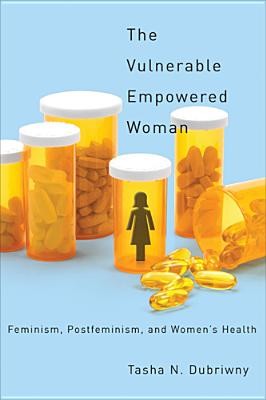
- We will send in 10–14 business days.
- Author: Tasha N Dubriwny
- Publisher: Rutgers University Press
- ISBN-10: 0813554004
- ISBN-13: 9780813554006
- Format: 15.2 x 22.9 x 1.5 cm, softcover
- Language: English
- SAVE -10% with code: EXTRA
Reviews
Description
Winner of the Organization for the Study of Communication, Language, and Gender 2013 Outstanding Book Award
Winner of the 2013 Bonnie Ritter Book Award from the Feminist and Women's Division of the National Communication Association
The Vulnerable Empowered Woman assesses the state of women's healthcare today by analyzing popular media representations--television, print newspapers, websites, advertisements, blogs, and memoirs--in order to understand the ways in which breast cancer, postpartum depression, and cervical cancer are discussed in American public life. From narratives about prophylactic mastectomies to young girls receiving a vaccine for sexually transmitted disease, the representations of women's health today form a single restrictive identity: the vulnerable empowered woman. This identity defuses feminist notions of collective empowerment and social change by drawing from both postfeminist and neoliberal ideologies. The woman is vulnerable because of her very femininity and is empowered not to change the world, but to choose from among a limited set of medical treatments.
The media's depiction of the vulnerable empowered woman's relationship with biomedicine promotes traditional gender roles and affirms women's unquestioning reliance on medical science for empowerment. The book concludes with a call to repoliticize women's health through narratives that can help us imagine women--and their relationship to medicine--differently.EXTRA 10 % discount with code: EXTRA
The promotion ends in 17d.18:37:47
The discount code is valid when purchasing from 10 €. Discounts do not stack.
- Author: Tasha N Dubriwny
- Publisher: Rutgers University Press
- ISBN-10: 0813554004
- ISBN-13: 9780813554006
- Format: 15.2 x 22.9 x 1.5 cm, softcover
- Language: English English
Winner of the Organization for the Study of Communication, Language, and Gender 2013 Outstanding Book Award
Winner of the 2013 Bonnie Ritter Book Award from the Feminist and Women's Division of the National Communication Association
The Vulnerable Empowered Woman assesses the state of women's healthcare today by analyzing popular media representations--television, print newspapers, websites, advertisements, blogs, and memoirs--in order to understand the ways in which breast cancer, postpartum depression, and cervical cancer are discussed in American public life. From narratives about prophylactic mastectomies to young girls receiving a vaccine for sexually transmitted disease, the representations of women's health today form a single restrictive identity: the vulnerable empowered woman. This identity defuses feminist notions of collective empowerment and social change by drawing from both postfeminist and neoliberal ideologies. The woman is vulnerable because of her very femininity and is empowered not to change the world, but to choose from among a limited set of medical treatments.
The media's depiction of the vulnerable empowered woman's relationship with biomedicine promotes traditional gender roles and affirms women's unquestioning reliance on medical science for empowerment. The book concludes with a call to repoliticize women's health through narratives that can help us imagine women--and their relationship to medicine--differently.

Reviews